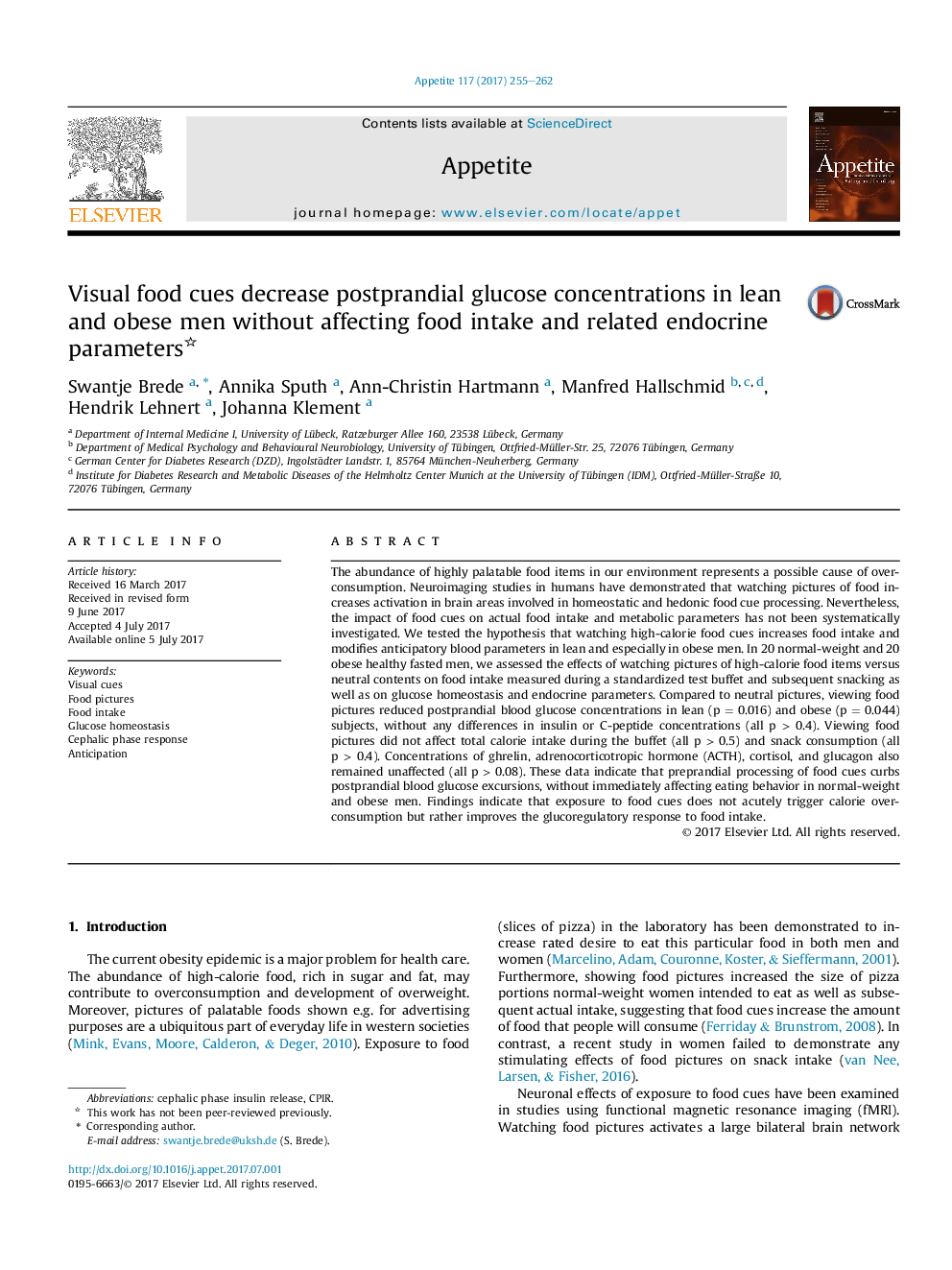| کد مقاله | کد نشریه | سال انتشار | مقاله انگلیسی | نسخه تمام متن |
|---|---|---|---|---|
| 5044081 | 1475363 | 2017 | 8 صفحه PDF | دانلود رایگان |
The abundance of highly palatable food items in our environment represents a possible cause of overconsumption. Neuroimaging studies in humans have demonstrated that watching pictures of food increases activation in brain areas involved in homeostatic and hedonic food cue processing. Nevertheless, the impact of food cues on actual food intake and metabolic parameters has not been systematically investigated. We tested the hypothesis that watching high-calorie food cues increases food intake and modifies anticipatory blood parameters in lean and especially in obese men. In 20 normal-weight and 20 obese healthy fasted men, we assessed the effects of watching pictures of high-calorie food items versus neutral contents on food intake measured during a standardized test buffet and subsequent snacking as well as on glucose homeostasis and endocrine parameters. Compared to neutral pictures, viewing food pictures reduced postprandial blood glucose concentrations in lean (p = 0.016) and obese (p = 0.044) subjects, without any differences in insulin or C-peptide concentrations (all p > 0.4). Viewing food pictures did not affect total calorie intake during the buffet (all p > 0.5) and snack consumption (all p > 0.4). Concentrations of ghrelin, adrenocorticotropic hormone (ACTH), cortisol, and glucagon also remained unaffected (all p > 0.08). These data indicate that preprandial processing of food cues curbs postprandial blood glucose excursions, without immediately affecting eating behavior in normal-weight and obese men. Findings indicate that exposure to food cues does not acutely trigger calorie overconsumption but rather improves the glucoregulatory response to food intake.
Journal: Appetite - Volume 117, 1 October 2017, Pages 255-262
